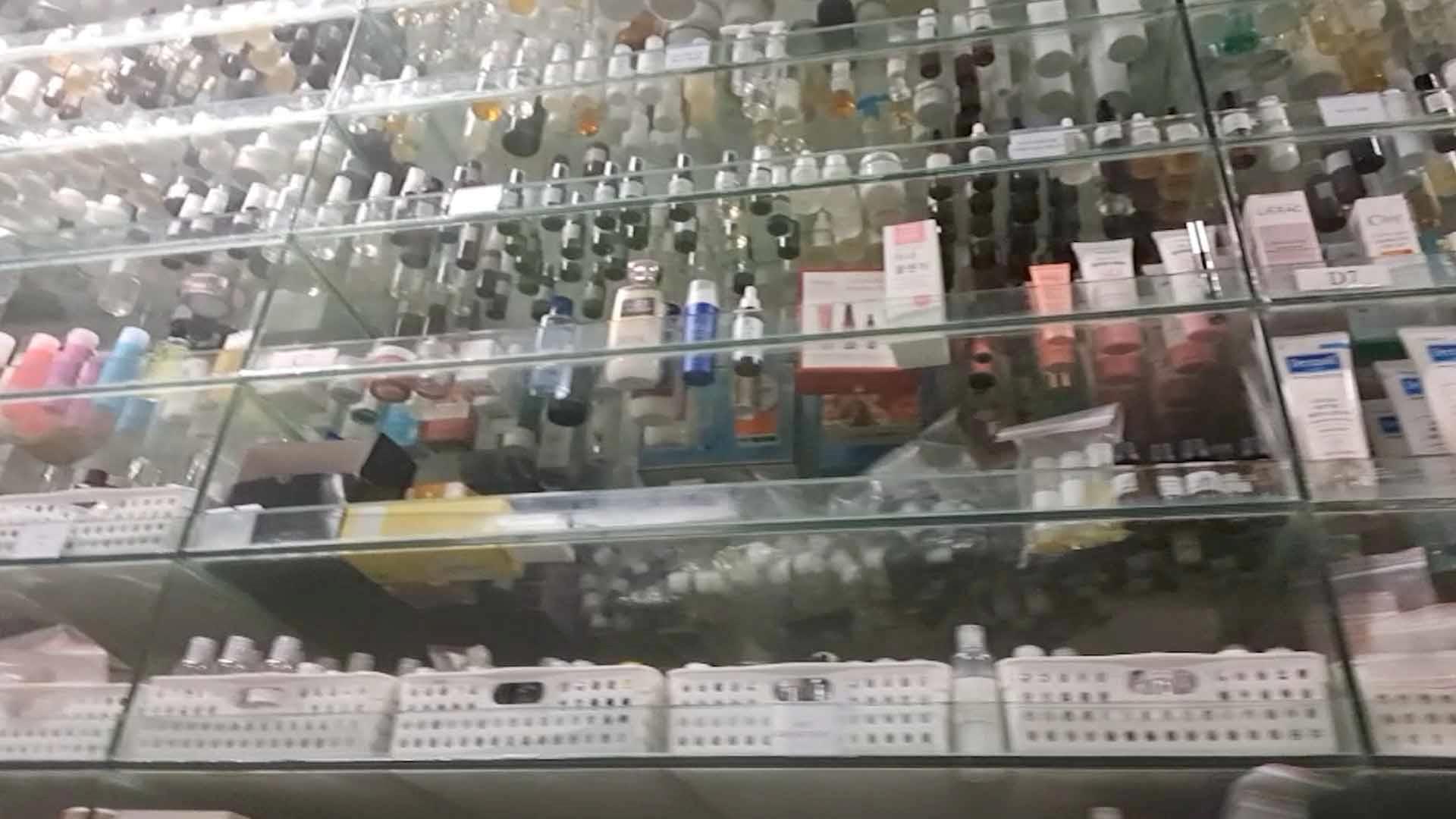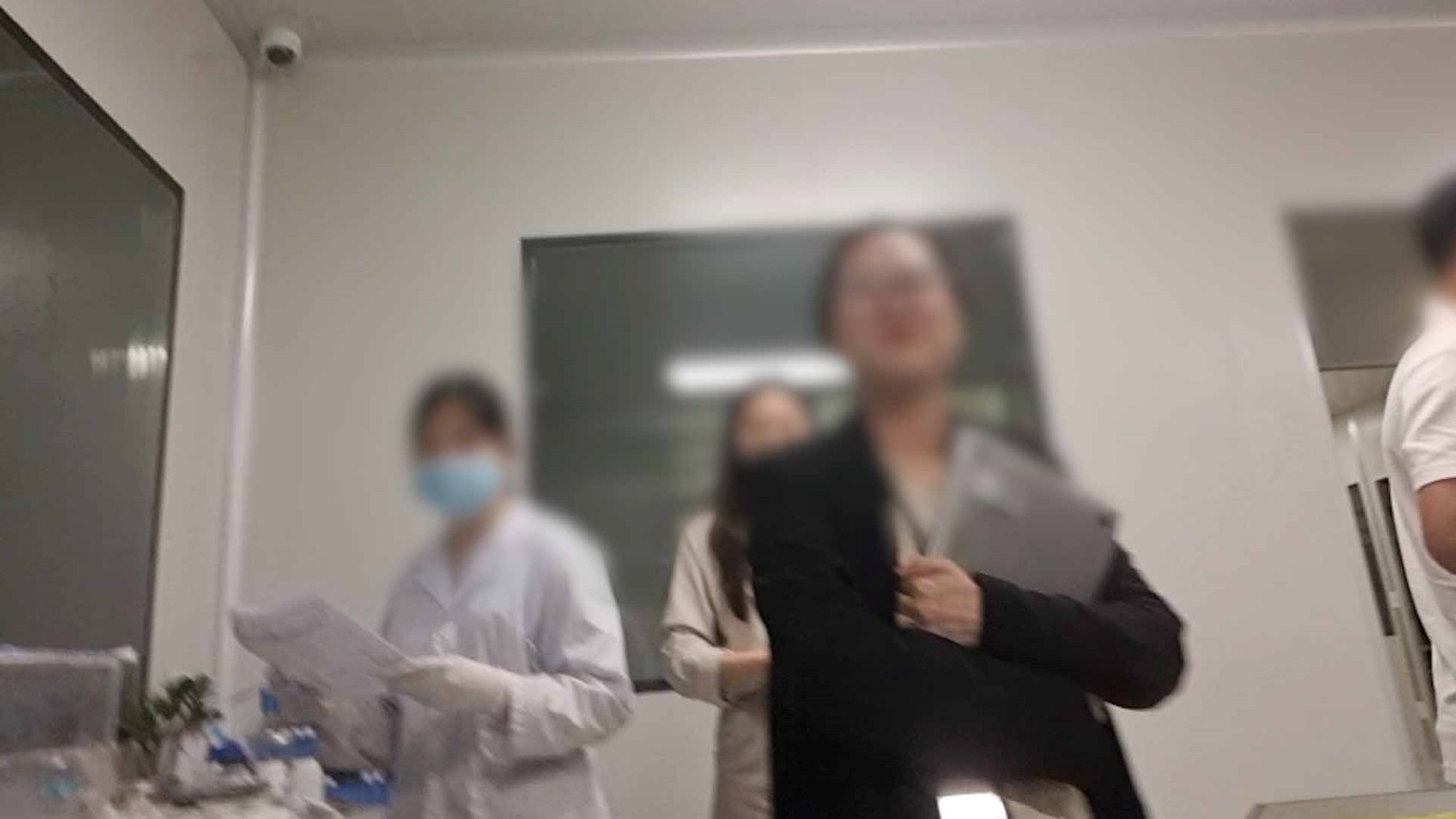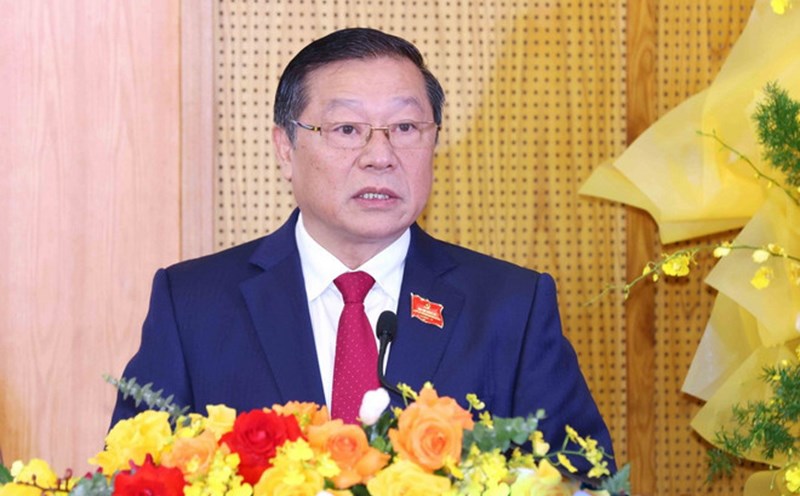The underlying institution behind a series of famous brands
Not from the strict laboratories of multinational corporations, but from processing factories, tens of thousands of cosmetic and functional food products are being "revived" every day, with customized formulas according to the budget and communication purposes.
In the cosmetic processing industry, Vimac processing factory is one of the prominent establishments advertised to have a processing factory that meets GGMP ASEAN/ISO 22716, headquartered in Nguyen Khe industrial cluster, Dong Anh district, Hanoi. This place is promoted as a cradle for a series of best-selling brands on TikTok, Shopee and many other e-commerce platforms.
Posing as a customer who wants to produce vegan masks to whiten skin, we were warmly welcomed by a staff named Ha (name changed). When requesting cheap products, Ha quickly suggested a formula with Niacinamide supplementation, a popular active ingredient for skin lightening, but with flexible content to ensure the price ranges from 7,000 to 9,000 VND/product.
Not only a place for production, Vimac is also ready to give a media wing to new brands: From lending video studio space, supporting " extract and packaging" images, to establishing fake raw material growing areas if customers need to build a "clean, standard, organic" brand story. A virtual identification set is enough to make consumers believe that they are using a high-end product.
Taking us to the lab, Hung (character's name has been changed), a product research specialist, said that customers who brought sample products here, including cosmetics from France, Italy, the US, Japan... were all here. As customers request the product, Vimac will try to create the closest version with that version, at least 80% similar.
According to the male expert of this lab, creating a formula similar to the original product is completely feasible. "Ladies and gentlemen, you can create a similar formula, just need to put another name or a similar name, as long as there is no breach of the exclusive registration, it is still legal" - this person said.
For example, a product with a 100% hypopharynx composition needs to be understood as follows: The original composition is actually 100% hypopharynx, not hypopharynx or the trunk of hypopharynx participating in that product, but the rate of hypopharynx participating in that product sometimes only accounts for 1%. So the product is still advertised as containing 100% of herring insects - this is a language trick in the business world.
During the advertising process about the factory, Mr. Hung also introduced many famous characters on TikTok and famous actors who also worked on products here such as cosmetics by TikToker H.K.N, or actor Q.T with a set of for men's products here.


New Zealand milk, Chinese ingredients: General recipe for the supplementary food industry
At another "workshop" - Lis Pharmaceutical Joint Stock Company Vietnam (LisGroup), the story is not much different. This is a place that produces a series of functional foods, starch and health protection foods, located in the new urban area of An Hung, Ha Dong district, Hanoi.
When we proposed to produce supplements from Cai Cau, the employee named Lan (name changed) frankly said: "The supplements are being strictly inspected, so my side recommends making health protection foods to be safer".
The phrase "health protection food" is a multi-purpose umbrella to squeeze through the check-in gaps. Pre-made formula, complete published documents, just need to redesign packaging to be able to launch on the market.
LisGroup currently has "several hundred products announced", meaning that customers only need to choose one set, "make a new name" to have their own brand.
At LisGroup, we met Duyen, even though she was born in 2002, Duyen has a lot of experience. This girl said that she has only worked here for 6 months but has directly built recipes for a series of products. Duyen said frankly: "To get cheap, you have to reduce the content of ingredients to the lowest possible".
And one of the familiar tricks is to create "labeled" products. For example, a box of milk has the brand name "New Zealand", but in reality, only carrier milk is imported from New Zealand, while nutritional components, minerals, vitamins... are imported from China, where the raw material price is so cheap that it is unimaginable.
Duyen gave an example: "To get more calcium from the bones of Tuyet fish, there is no need to puree the fish - just buy calcium powder from there, it is enough to put it on the packaging". A trick that deceives consumers' feelings of security, but is completely legal on paper.
The most worrying thing is not the production technique or the naming, but the fact that these products can easily cross the inspection barrier and enter the market as a safety-ckspected product.
Lan - LisGroup employee - shared: "A post-inspection only occurs when there is a "flash" or reporting. Normally... no one touches it. The indifference of management agencies, combined with the sophistication of processing facilities, is causing the market to be flooded with products with international labels but low-quality domestic prices.
The story of producing cosmetics and functional foods is no longer simply a "demand-based industry", but has become an underground industry: A place where everything can be "dug up", from packaging, formulation, raw material growing areas, to... consumer trust.
Behind each slogan "from nature", "Japanese technology", "imported materials" ... could be just a language game, a matrix elaborately designed to lure consumers.
A chaotic market, when products can be "revived" in a few days, brands are "inflated" in a few TikTok clips, and the published records are just paperwork that can... be handled according to the law. Consumers, if not alert, can easily become victims of a business ecosystem that does not focus on human health.












